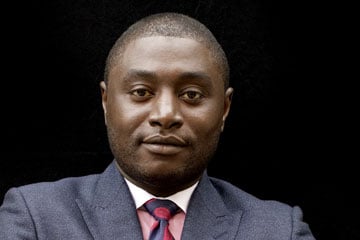In an “unprecedented” decision, a judge at the Ontario Superior Court of Justice said on Monday that the province’s bill to cut the size of city council “clearly crossed the line.”

In an “unprecedented” decision, a judge at the Ontario Superior Court of Justice said on Monday that the province’s bill to cut the size of city council “clearly crossed the line.”
The decision, City of Toronto et al v. Ontario (Attorney General), 2018 ONSC 5151, focused on a challenge to the constitutional validity of a provision of Bill 5, presented by the provincial government to change the number of wards and councillors to 25 from 47, according to Justice Edward Belobaba, who wrote the decision. Belobaba said the provisions of the bill were unconstitutional and should be set aside immediately to allow for planned elections on Oct. 22, adding that he was playing the role of “judicial umpire.”
However, the province countered by publicly saying it will recall the legislature and intends to “introduce legislation that, if passed, will invoke section 33 of the Constitution” and ensure the act is in place for the Oct. 22 municipal election. The province also plans to appeal the ruling, said Ontario Premier Doug Ford.
“I believe this decision is deeply concerning and wrong and the result is unacceptable to the people of Ontario," said Ford in a prepared statement. "If you want to make new laws in Ontario — or in Canada — you first must seek a mandate from the people."
David Butt, a Toronto-based criminal lawyer, says the premier has the power to invoke the notwithstanding clause and it’s “certainly a legislative option available to him.”
“It would be a dark day for democracy if he did,” says Butt.
Butt says the decision by Belobaba was important, because it provides “significant advancement” of the law in terms of the relationship between freedom of expression and democracy.
“Tough cases either make bad law or they advance the law,” he says.
Rocco Achampong, a lawyer who filed the application in the matter, says he is pleased with the ruling.
“It’s a good day for democracy and affirmation of process and principle, and let’s see what happens next,” he told Law Times. Achampong says the judge focused on the 2(b) section of the Charter in the ruling.
“As lawyers, never accept a conclusion as given,” he says. “[A]lways use your training, knowing full well that if it offends you in principle, chances are there is a legal argument to be made.”
The provisions “substantially interfered with both the candidate’s and the voter’s right to freedom of expression” under the Canadian Charter of Rights and Freedoms, Belobaba wrote, citing s. 2(b). While the province has authority to pass a law that is “wrong-headed, unfair or even ‘draconian,’” Belobaba wrote in the decision, any such legislation must comply with the Charter.
“At first glance, Bill 5 although controversial in content appears to fall squarely within the province’s legislative competence,” Belobaba wrote. “Upon closer examination of the surrounding circumstances, however, one discovers at least two constitutional deficiencies that cannot be justified in a free and democratic society. The first relates to the timing of the law and its impact on candidates; the second to its content and its impact on voters. “
In the case of Bill 5, Belobaba said, the timing (in the middle of an election campaign) breached candidates’ freedom of expression, which may not have been the case had the law changed “say six months before the start” of the election period.
Belobaba also said that the provision nearly doubled the population of city wards, breaching voters’ rights to cast a vote resulting in “effective representation.” Belobaba cited the Supreme Court’s explanation of effective representation on the Saskatchewan Reference, writing that the guarantee of the right to vote in federal or provincial elections in s. 3 of the Charter also applies to municipal voters’ rights.
“The evidence before this court supports the conclusion that if the 25 FEDS option was adopted, City councilors would not have the capacity to respond in a timely fashion to the ‘grievances and concerns’ of their constituents,” Belobaba wrote.
The original goal of Bill 5, Better Local Government Act, 2018 was efficiency and cost savings, but Belobaba said those two objectives were not “pressing and substantial enough” to take effect in the middle of the election. Respondents at the Attorney General of Ontario and the office of Premier Doug Ford were challenged by several applicants, including the City of Toronto and Achampong, as well as an organization called Women Win TO, including named applicants Chris Moise, Ish Aderonmu and Prabha Khosla.
A statement from a City of Toronto spokeswoman, Tammy Robbinson, thanked the Ontario Superior Court and Belobaba for the “swift decision.”
The city is moving ahead with elections for the fall, the statement said.
“The judge ordered that the challenged provisions have no force or effect and are set aside immediately. Accordingly, the City's election on October 22, 2018 shall proceed as scheduled but on the basis of 47 wards,” said the statement.
The statement also said that advance voting will begin on Oct. 10, after nominations for candidates closed earlier this year, in July. City solicitor Wendy Walberg did not provide a comment to Legal Feeds, but the statement provided by the city thanks her and her team, which included Diana Dimmer, Glenn K.L. Chu and Philip Chan, for their work.
Editor's Note: This story has been updated to include comment from the City of Toronto.










